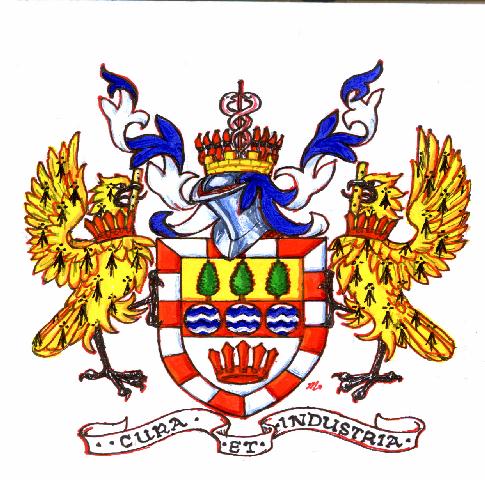Mount Gambier: Difference between revisions
Knorrepoes (talk | contribs) m (Text replacement - ".jpg|center]] ====Official blazon====" to ".jpg|center|Arms (crest) of {{PAGENAME}}]] ====Official blazon====") |
Knorrepoes (talk | contribs) m (Text replacement - "{|width="100%" style="color:black; background-color:#ffffcc;" |width="15%"|50 px|left |width="70%" align="center" |'''Heraldry of the World<br>Civic heraldry of Australia''' |width="15%"|50 px|right |}" to "{{australia}]") |
||
| Line 1: | Line 1: | ||
{ | {{australia}] | ||
'''MOUNT GAMBIER''' | '''MOUNT GAMBIER''' | ||
Revision as of 07:14, 28 January 2016
{{australia}]
MOUNT GAMBIER
State : South Australia
Official blazon
Origin/meaning
The arms were granted on July 10, 1978.
The Arms reflect Mount Gambier's situation and natural highlights by the colours red and white the red dolomite blocks and the cream sandstone quarried locally, the trees for the extensive pine plantations and the fountains for the three lakes.
Mt Gambier was named in 1800 by Capt. James Grant RN of the "Lady Nelson", in honour of James Gambier of Buckinghamshire, who became an Admiral of the Fleet. The Eagles are from his arms, differenced by the organ pipes, which allude to Dr William James Browne. Browne was principal founder of Christ Church in the town and has an organ chamber and window in his memory. His brother Dr John Browne was medical officer in the expeditions of Charles Sturt, so they are each remembered in the caduceus and Sturt's Desert Pea in the Crest.
The Crown Vallary honours Admiral Gambier for his services at the siege of Copenhagen, while the Mural Crown is the mark of a municipal authority.
Contact and Support
Partners:
Your logo here ?
Contact us
© since 1995, Heraldry of the World, Ralf Hartemink 
Index of the site
Literature : Information provided by Denis Towner (dtowner@midcoast.com.au)










